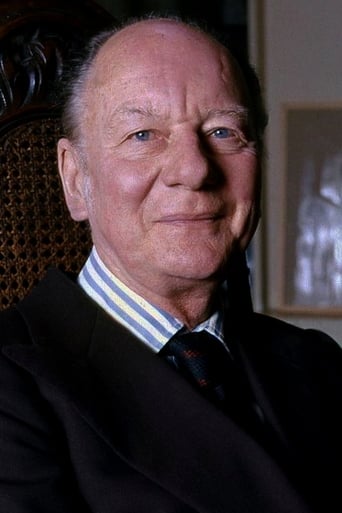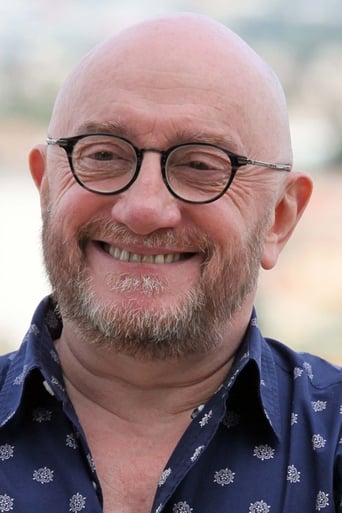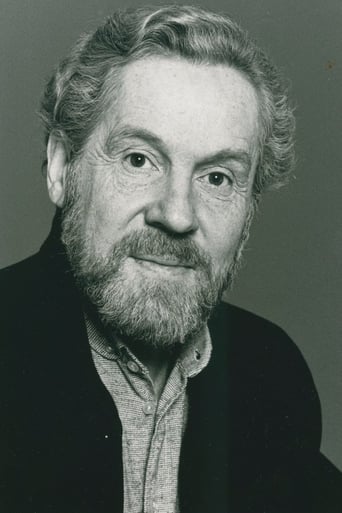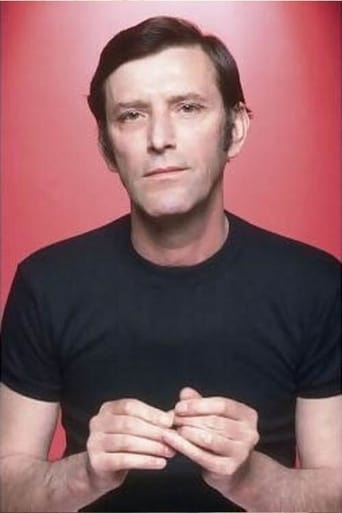BootDigest
Such a frustrating disappointment
SpuffyWeb
Sadly Over-hyped
Konterr
Brilliant and touching
Erica Derrick
By the time the dramatic fireworks start popping off, each one feels earned.
chaos-rampant
I think some knowledge of the play is important here. The Tempest was the last one that Shakespeare wrote alone near the end of his career and though short and simply structured, one of the most complex. It is about many things but most pertinently here for us, about the author creating, gathering the story around him and bringing characters to him to enact it. It is about the author as magician effecting control upon the fates with his obscure knowledge of spells by which he shapes the world to his liking. And eventually, it is about wilfully giving up the spells that sustain the illusion in which we are kept prisoners.Into this loaded context that Shakespeare wrote about himself comes Peter Greenaway, with his own obsessions about the creative process. He has a perfect grasp of what's going on here; the film opens with Prospero writing the action with himself in it.The film is not called by its original title though, it's about Prospero's books. 24 of them in all, the first 22 comprising vast, arcane knowledge (the knowledge that cost Prospero his dukedom) from which are born the illusions that motion the flow. The rest of the characters with the important exception of Caliban, are passive participants, mere pawns to be binded or moved according to the higher whim that creates the story.There is one scene that threatens to kill this off. It's the protracted wedding sequence, so decadently opulent, with hordes of plumed naked bodies swirling in huge rooms. But it ends with Prospero invading this scene which he has imagined, pausing everything. The spectacle is hidden from view, behind mirrors, then behind a curtain, as Prospero delivers the beautiful solliloquy about life as a dream that ends with sleep.It presages, for the first time with clarity, what is important for me in this work. The strange, mythic island as the mind, where as other Prosperos we pace up and down setting the stage for the illusions we choose to inhabit. Our grieves and perceived slights against us, our cravings and desires.And the path leading out of it again, first the reconciliation not with the actual offenders (the Alonsos and Antonios) but our own figments of them inside the mind. And then by the destruction of our ideas and catalogues about things so that we may return to the things themselves, now receptive to what they have to offer.All 22 books are destroyed by Prospero eventually, who gives up his magic. Another 2 books become available then, one is about games, the games that life is about. The other is what we come out of the ordeal with, the reward for our efforts that may enrich others in turn. Here encoded as a book about the actual Shakespeare play, where the corresponding pages are blank as yet-to-be-written.Some of the filmmakers I most cherish belong in two groups. One is about seeking true perception, the things as they are (and us). It is about dismantling the cluttered fictions we weave around and associate with them, which obscure the true meaning whereby the things mean themselves to us. It is about removing the mask so that we may have in-sight of the actual shape.Another group of films I am drawn to assail those same preconceived notions by fabricating others to replace them. Stories within stories, fictions passing as real, dreams as realities, various layered patterns. The idea here is that by removing one mask, the synthetic, we discover another hiding underneath. It is also about removing and revealing, about the distinction between an apparent and ultimate reality (this is not merely for the sake of philosophical discourse, but as visual addendums to what is actually realized in meditation).Greenaway is one of the most prominent of the second group. So far, however, I had only been truly struck by The Draughtsman's Contract and found the rest interesting but not something to make my own. This is the second that captivates me, but a more difficult film than Draughtsman, more oblique, more impossible with annotated images.But as great in its notions about the nature of reality. It's full of frames within frames, indeed some of the nested ones are observed by a chorus from the edges of the outer frame. And there is an image of Prospero working the story in his study as a boxed stage within a bigger one.And more beautiful in how the story is envisioned. What must have been, in Shakespeare's time, sparse and invoked in the imagination, is here made alive, all of it. The toy boat tossed about in a miniature tempest, the drowned men salvaged by spirits of the water. Caliban, a brute in the original, here a most graceful dancer.And a most thoughtful transition within Greenaway. Draughtsman and A Zed and Two Noughts ended with the destruction of the creator and his consciousness that fought to arrange the world. This one ends with the destruction of the arrangements by which the creator would arrange the world, and the creator survives by arranging himself in a way that he enters the world clear, empty, empty-to-be-filled again.
Blueghost
I'm sorry, I have to agree with the bottom feeders on this one. This film is just utter visual crap on a pile of fertilizer. I mean the opening shot is pretty insulting, and not for the feint of heart. Good to know cherubs can perform bodily functions on a swing. And right at the camera no less.I'm reminded of "Hollywood Shuffle", and Robert Townsend's take off the then famous Siske-n-Ebert duo. In Townsend's vignette the two "brothers" rate movies with thumbs up and thumbs down just like Siskel and Ebert. They even give one movie they like the "serious high-five"! Ah, but for the one movie they didn't like? "We give dis movie, the FINGER!"Ayup, and that's kind of how I feel about this scatter brained, ill- conceived, slop-artist hack effort.Oh man, I don't know, this thing reminds me of some of Rob Nilsson's investigative films, only I have no idea what real world crime is being put to the audience, other than the travesty that is this movie.Shakespeare it ain't. Avoid like a pack rabid zombie dogs!
Oceans17
Well, let's summarize...Shakespeare, considered by many as the greatest genius of all time, the person who understood every other person (past, present or future) and carved this understanding into pages that cover the whole range of human experience. Most influenced by ancient classics, most influential in modern classics: unequaled "focal point" of literature."The Tempest", Shakespeare's final and most abstract work, possibly a self-conscious farewell to theater and life, and surely his swan song.John Gielgud, considered by many as the greatest actor of 20th century, hence the best actor whose work is recorded in audio and video: like Hamlet, equally good for profound monologues and acrobatic sword fighting (at least when he was young). Now with his favorite role (Prospero) in the film he ever dreamed to do, and at the peak of his art, surely his swan song.Peter Greenaway, reputed aestheticist and acknowledged as one in a few truly original creators (along with Scorsese, Coppola, Lynch, Kurosawa...) in a pioneering work with high definition video and the freedom of independent film-making (thanks to very far-sighted producer Kees Kasander).Michael Nyman, paradigm shifting musician.Whatever could go wrong? Of course, nothing. Nothing at all.Result of the equation: deep radiography of the human soul, told by the best voices you can imagine (not only Gielgud: the book narrator is unforgettable, too), embedded in an aesthetic feast that can overload your senses, sensibility and intellect, with moments that may leave you breathless. An infinitely detailed work admitting infinite viewings.10 out of 10 for everyone involved, particularly John Gielgud whose presence alone would make this film worth watching.
rooprect
Peter Greenaway should stick to directing music videos. Maybe some occasional highbrow porn. But he should never, never, never be allowed to make a feature film.By snipping a few lines of Shakespeare's Tempest, throwing it in a hat and puking it back up on the screen, he's not doing any great service to literature or cinema. By showing obese naked women in very uncomplimentary poses, he's not doing any great service to art. And with his abysmally banal score, he's not doing any great service to music. To whom, then, IS he doing any service? Answer: to the mtv generation kids who are reaching for something slightly more elevated than a 4-minute video. Slightly.We get the standard "Metallica" camera tricks (slow-moving camera on a dolly, panning across incomprehensible scenery). We get the standard Avril Lavigne composition & slow motion fun with mirrors. And we get the Sir-Mix-a-Lot close up booty shots. Baby got back. Baby got fat.I give this a 2/10. The only reason why I don't give it a 1 is because this wasn't as bad as Greenaway's total slop "The Falls".





